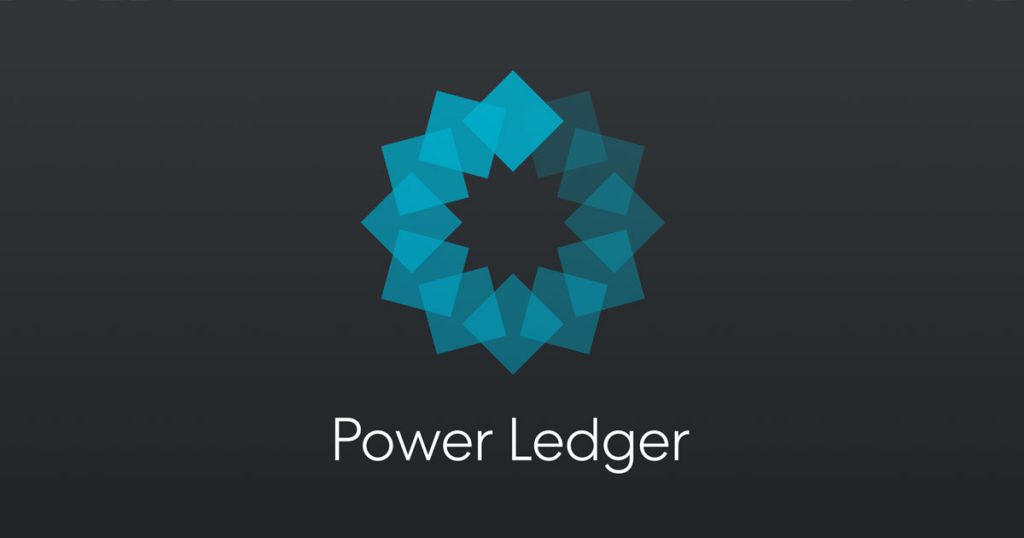Power Ledger, A Blockchain Energy Startup Extends Its P2P Trial
Power Ledger, a blockchain startup focusing on the energy sector, has extended its peer-to-peer (P2P) trial for energy trading into its next phase in Fremantle, a city in West Australia.
Power Ledger is reportedly continuing its P2P solar power trading testing which intends to track rooftop solar energy being traded among households in Fremantle. The households taking part in this initiative are given the freedom to charge their own energy prices in the market.
‘50,000 transactions per month’
The trial is an integrated initiative by Power Ledger, Synergy (an energy generating company), Curtin University, Western Power (an electricity network operator) and energyOS (an energy services platform). It was originally due to be completed in June 2019, but will now extend until December this year.
The testing was initiated in November 2018, and processed around 50,000 monthly transactions on its blockchain platform.
The release explains:
“Western Power’s smart meter data was fed into Power Ledger’s blockchain trading platform and then exported to Synergy’s billing system, to ensure a secure and accurate recording of the energy trading.”
Management of power used by consumers
As per Jemma Green, the executive chairman of Power Ledger, P2P trading enables providing the customers linked to the electricity grid with an option to operate and manage their power use. Adding to this, the manager of new energy at Synergy, Krystal Skinner, said that:
“The first phase gave us insights into the profile of customers that could benefit from peer-to-peer trading, along with highlighting some challenges for developing the right pricing model. The second phase will incorporate changes based on these insights to determine product potential.”
Earlier this month, Japanese Kansai Electric Power Co. (KEPCO) wrapped a collaborated trial of a blockchain system for post-FIT (feed-in-tariff) surplus power in Osaka, Japan. The system was said to allow the conduction of the P2P transaction of surplus power automatically and autonomously, which also included settling digital assets.
According to a report released by the Congressional Research Service earlier in August, there are various potential advantages as well as disadvantages of leveraging blockchain-based solutions in the sector of energy. In a survey, 77% of the participating respondents believe that the energy sector lacks sufficient standards for applying blockchain solutions.
Stay informed with daily updates from Blockchain Magazine on Google News. Click here to follow us and mark as favorite: [Blockchain Magazine on Google News].
Get Blockchain Insights In Inbox
Stay ahead of the curve with expert analysis and market updates.
latest from tech
Disclaimer: Any post shared by a third-party agency are sponsored and Blockchain Magazine has no views on any such posts. The views and opinions expressed in this post are those of the clients and do not necessarily reflect the official policy or position of Blockchain Magazine. The information provided in this post is for informational purposes only and should not be considered as financial, investment, or professional advice. Blockchain Magazine does not endorse or promote any specific products, services, or companies mentioned in this posts. Readers are encouraged to conduct their own research and consult with a qualified professional before making any financial decisions. The featured image used is just a creative depiction of the title and it does not intend to hurt sentiments of any person or institution. If it hurts anyone sentiments, please do not hesitate to reach out to Blockchain Magazine.

 Bitcoin
Bitcoin  Ethereum
Ethereum  Tether
Tether  XRP
XRP  Solana
Solana  USDC
USDC  Dogecoin
Dogecoin  Cardano
Cardano  Lido Staked Ether
Lido Staked Ether  TRON
TRON  Wrapped Bitcoin
Wrapped Bitcoin  Chainlink
Chainlink  Wrapped stETH
Wrapped stETH  Avalanche
Avalanche  Sui
Sui  Stellar
Stellar  Toncoin
Toncoin  Shiba Inu
Shiba Inu  Hedera
Hedera  LEO Token
LEO Token  Hyperliquid
Hyperliquid  Bitget Token
Bitget Token  Litecoin
Litecoin  WETH
WETH  USDS
USDS  Polkadot
Polkadot  Bitcoin Cash
Bitcoin Cash  Ethena USDe
Ethena USDe  MANTRA
MANTRA  Wrapped eETH
Wrapped eETH  Uniswap
Uniswap  Pepe
Pepe  Ondo
Ondo  Monero
Monero  WhiteBIT Coin
WhiteBIT Coin  Aave
Aave  NEAR Protocol
NEAR Protocol  Mantle
Mantle  Official Trump
Official Trump  Dai
Dai  Aptos
Aptos  Internet Computer
Internet Computer  Ethereum Classic
Ethereum Classic  Bittensor
Bittensor  OKB
OKB  Cronos
Cronos  POL (ex-MATIC)
POL (ex-MATIC)  Gate
Gate 




